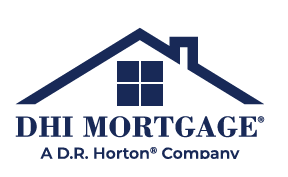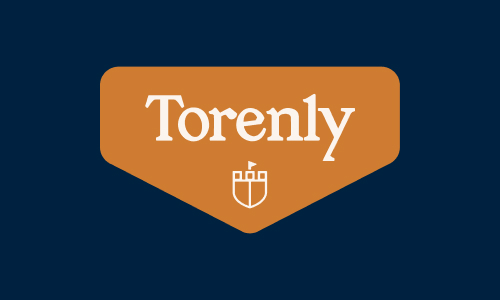Final Legislative Report
2024 Oregon Legislative Session
Prepared by: Markee and Associates
The 2024 legislative session adjourned late in the day on Thursday, March 7th around 8:15 PM.
It was an unusual session in that access to the building was limited due to major construction to the Capitol but also because the two parties worked together in a more collaborative fashion that has been seen in several years. The legislative process ran uninterrupted and there was compromise on key issues that kept the tenor of session much calmer than in the recent past. The current make-up of the legislature is controlled by the Democrats, who hold majorities in both chambers with a 17-13 advantage in the Senate and 35-25 in the House. In the lower chamber, Representative Dan Rayfield served again as Speaker. Rep. Jeff Helfrich was elected by his caucus as House Republican leader, replacing Rep. Vikki Breese Iverson and Rep Julie Fahey continued to serve in her role as House Democrat Leader. In the Senate, Senator Rob Wagner continued to serve as President. Senator Tim Knopp remained as Senate Republican Leader as did Senator Kate Lieber as Democrat Leader.
Going into session there were a handful of matters legislative leadership were prioritizing which included addressing housing and production, making changes the perceived shortcomings of M110 (HB 4002) and, in a bit of a surprise, there were also major changes to campaign finance law which took shape in HB 4024. While few expected these negotiations to come together in such a short amount of time, it was done out of necessity as there were two ballot measures proposed to be on the ballot (which were withdrawn) that drew varying concerns among both the business community and unions, and also interests all along the political spectrum. The March revenue forecast projected $550 million in unanticipated revenue, much of which were funds state agencies hadn’t spent yet and raised the revenue since the 2023-25 legislatively adopted the budget to $1.2 billion. This extra money made it easier for legislators to support the governor’s housing bill (SB 1537) and spend extra money in HB 4002, as well as establishing funding for some other proposals that otherwise may not have happened.
SB 1537
SB 1537 was the governor’s omnibus housing bill which came together after over a year of negotiations with a wide variety of stakeholders. Most who participated in those discussions did not get everything they wanted; overall, a needle was thread, and the bill garnered the support of most at that table. SB 1530 was a companion bill which funded much of the investments within SB 1537.
To summarize, the bill attempts to address the following areas:
- Land Supply Allows for a one-time Urban Growth Boundary (UGB) tool for cities that have a need for both land and affordable housing and requires that 30% of all the homes are affordable. This allows expedited and limited expansions for cities that have a need, while at the same time sets forth a series of requirements to ensure that expansion areas take into consideration diverse housing choices, a mix of densities, amenities such as stores and restaurants, parks, and open spaces, walking and biking infrastructure, affordable homeownership opportunities, etc. Finally, the land cannot be high-value farm or forest land outside of urban reserves already designated for future urban development and is capped at no more than 75 or 150 acres, depending on city population.
- Housing Accountability and Production Office (HAPO) HAPO will provide cities and housing developers with tools to help streamline the development process. As an example, the office will produce ready build plans and model codes to expedite development and then work to ensure that the state’s housing laws are being followed by offering a voluntary process to address complaints, concerns, and issues from local governments and developers about compliance with state housing law.
- Funding for Housing Production $500 million investment package from existing state resources to unlock more housing production by providing funding to build core infrastructure like water and sewer to support new housing development, and funding to moderate income housing.
SB 1530
SB 1530 appropriates $279.6 million of the General Fund across eight agencies to support investments in housing stability, infrastructure development, housing production, climate impacts, and recovery housing.
General Fund appropriations to state agencies include:
- $89.4 million to the Oregon Business Development Department, to administer grants for water and waste-water projects that support housing production.
- $112 million to the Housing and Community Services Department for shelter operations, homelessness prevention, matching funds for individual development accounts, and tenant education and navigation.
- $30.3 million to the Department of Administrative Services for distribution to entities that will acquire and redevelop property for affordable housing, and support the distribution of donated household goods.
- $36.5 million to the Oregon Health authority, of which $15 million will be invested in the Healthy Homes fund, $18 million will support grants to housing providers serving people recovering from substance use disorders; and $3.5 million will support acquisition and distribution of air conditioners and air filters.
- $4 million to the Department of Energy for investment in the Residential Heat Pump program.
- $6.5 million to ODOT and the Water Resources Department for other housing related infrastructure grants.
The fix to M110, HB 4002, coined the Oregon Drug Intervention Plan, gives law enforcement tools to confiscate hard drugs and connect people to treatment. HB 5204 is the budget companion of HB 4002 and invests $211 million in shovel-ready projects and programs to expand behavioral health treatment capacity, apprenticeships and training for behavioral health workers, Medication Assisted Treatment (MAT) in jails, addiction prevention programs and education, deflection-to-treatment programs, drug courts, and criminal justice system capacity.
Looking towards the future
There will be many policy discussions taking place in the months leading up to the next session which will begin in February of 2025. Spring will be busy as agency bill concepts must be submitted by early summer. In addition, there are various workgroups and taskforces we will be monitoring which will also be meeting to hash out several other issues, so there will be much work during the interim. Separately, we are expecting yet another busy campaign cycle with the primary election occurring on Tuesday, May 21st. While the Presidential election will take up a lot of the airtime, there will be many races that will be hotly contested here locally. We will send out a brief summary outlining races to watch which will give you a preview of what to be watching for in November. As always, please do not hesitate to reach out with any question you might have.
Upcoming key 2024 dates include:
- May 21st Primary election
- May 29th-31st Interim Legislative Days
- Sept 23rd-25th Interim Legislative Days
- Sept 27th deadline to request presession filed legislation for 2025
- Dec 10th-12th Interim Legislative Days
What follows are a couple of other bills we tracked for you, all separate from SB 1530/37 mentioned previously.
HB 4056
HB 4056 was introduced to try and fix an issue when a county forecloses on a property because of unpaid property taxes. Under current law when a county forecloses in this scenario, if there is more equity in the home at the time of sale than owed to the county, the county kept the extra money. A recent U.S. Supreme Court case ruled that this was a “taking” which became Oregon’s need for legislation. As passed, this is just a temporary fix and will be continued to be worked on during the interim looking for a more permanent solution in 2025.
HB 4058
HB 4058 is sort of an omnibus bill which does three things:
First, it regulates residential property wholesaling in Oregon. This is something we plan to be closely involved in during the interim and into the administrative process.
Second, it prohibits real estate licensees from entering long-term contracts that require homeowners to use the real estate licensees’ services in the future, also known as “future right to list agreements”.
Finally, HB 4058 requires real estate licensees to use written agreements with buyers and sellers for their services. Like requirements on real estate licensees representing sellers to use a written listing agreement, real estate licensees representing buyers will now be required to use a written representation agreement with their buyer clients and limits those contracts to a renewable 24 months.



